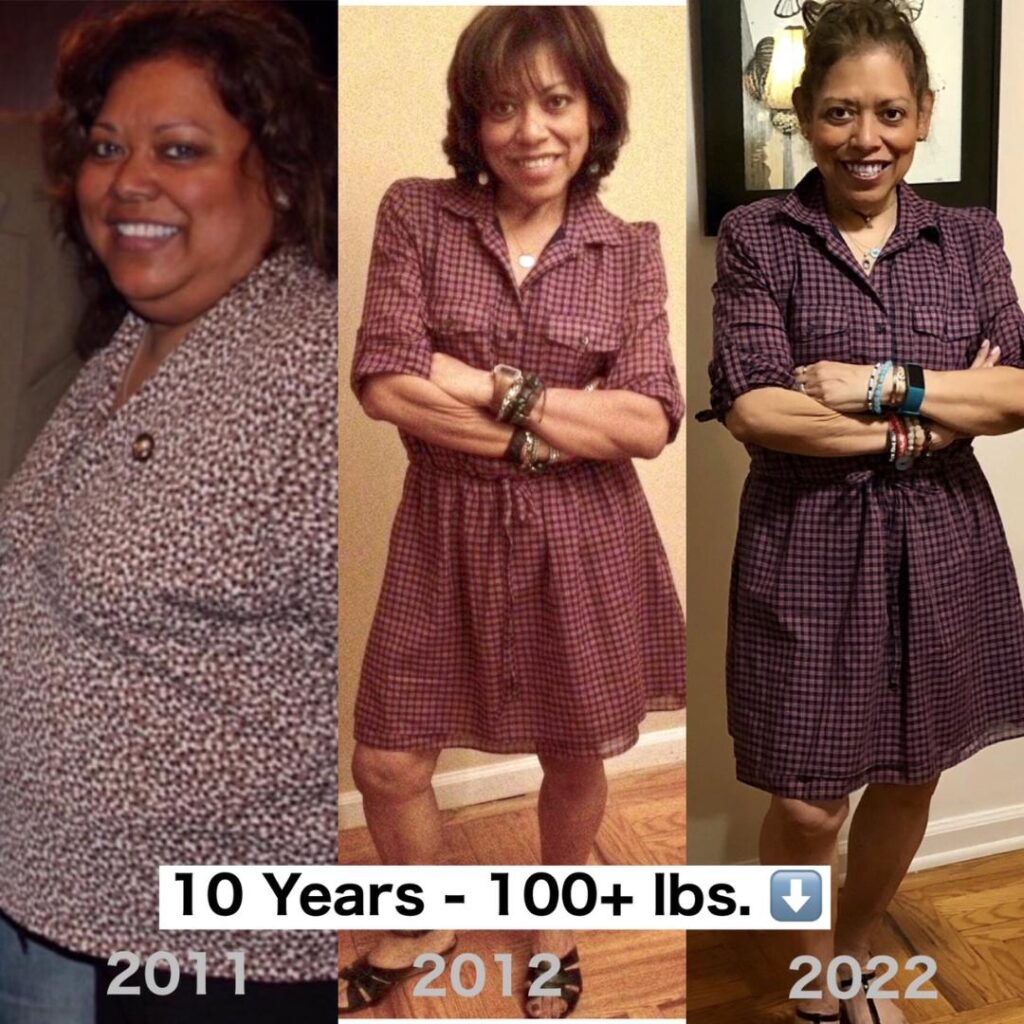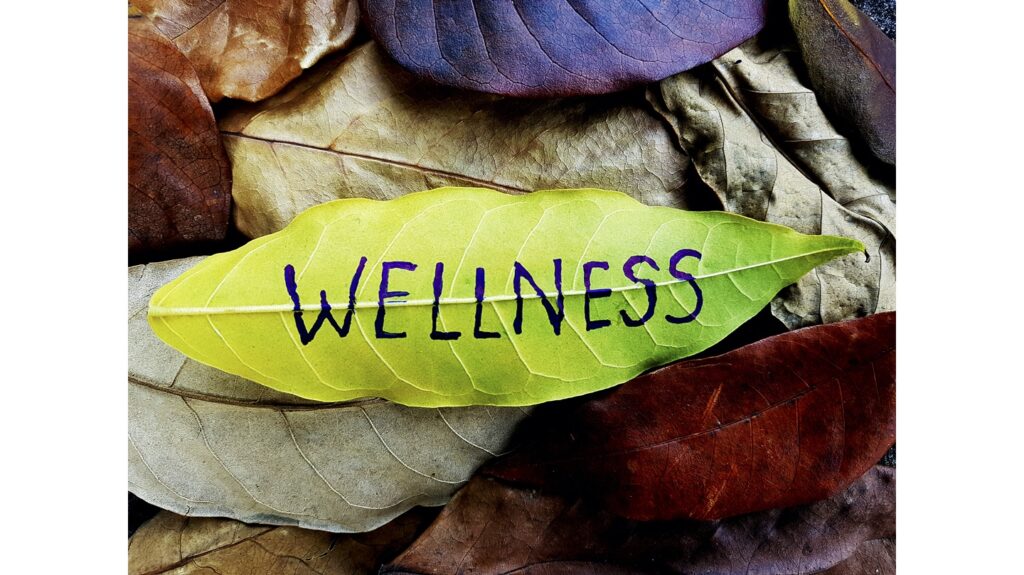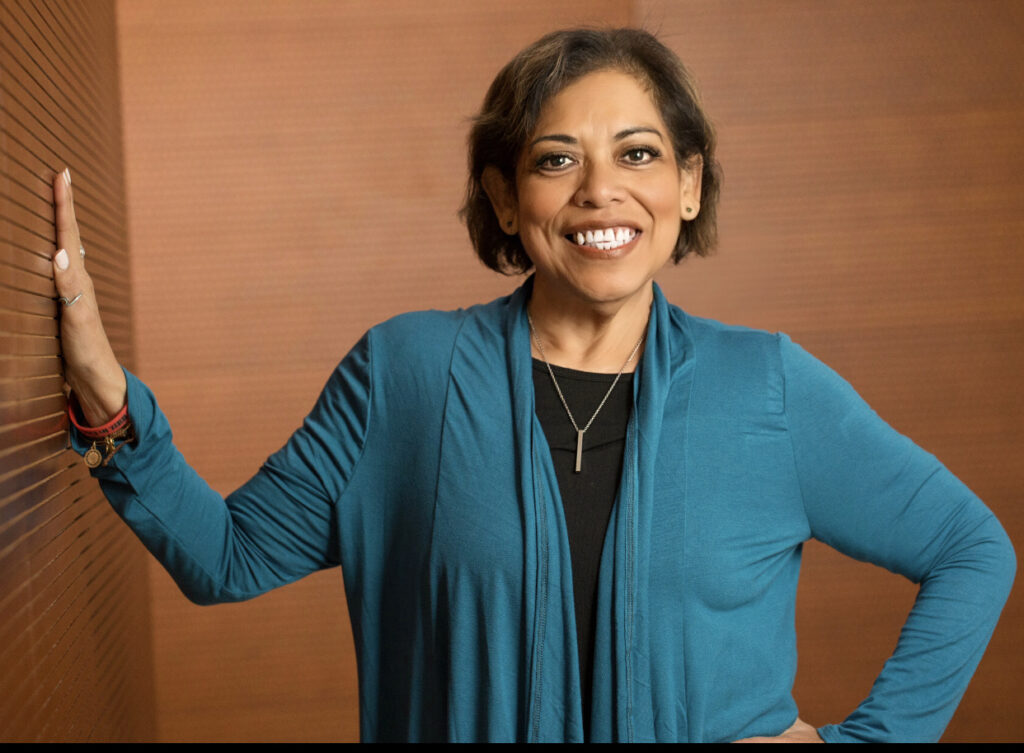March is National Nutrition Awareness Month, and Cervivor, Inc. is shining a light on the critical link between a healthy diet and improved outcomes for cervical cancer survivors. With an estimated 18 million individuals in the U.S. having a history of cancer in 2022 (Cancer Treatment & Survivorship Facts & Figures 2022-2024), understanding the role of nutrition in survivorship is more vital than ever.
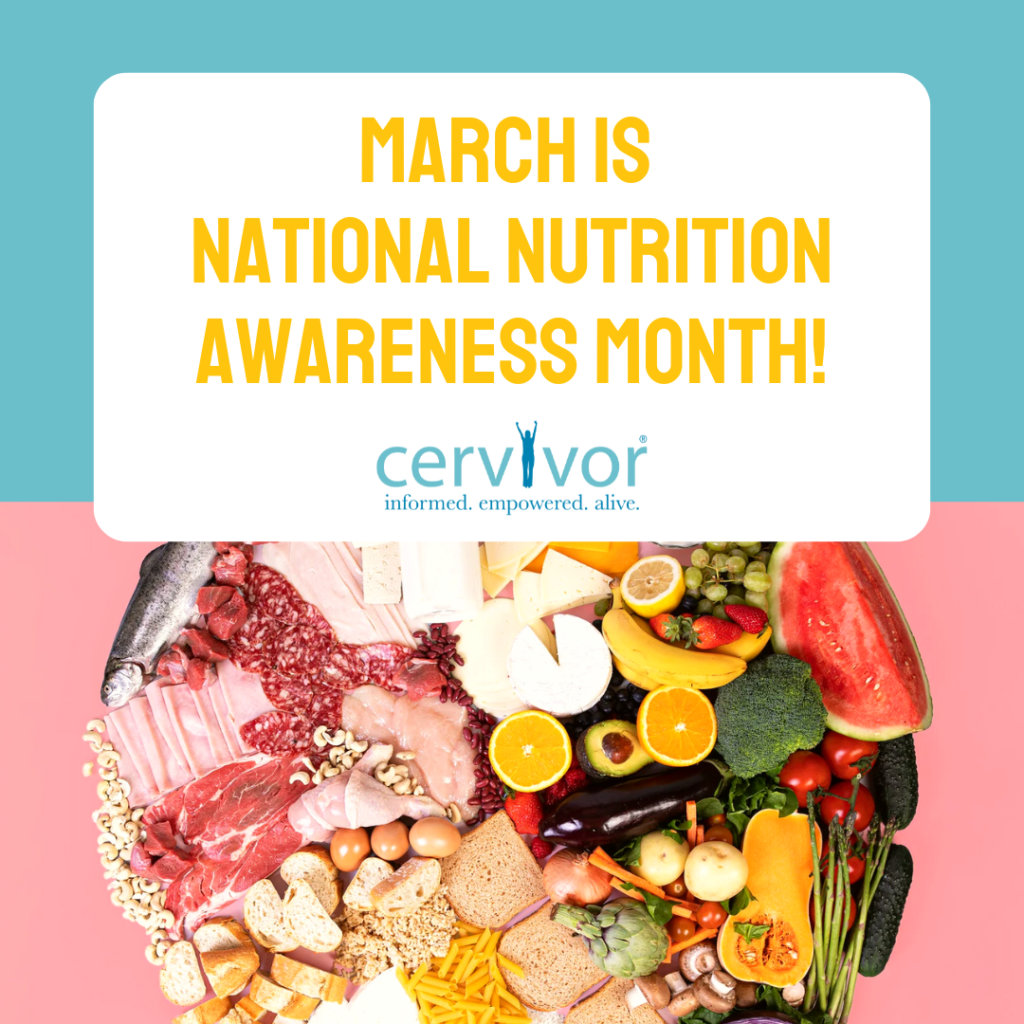
As a cervical cancer survivor, you likely recognize the importance of maintaining a healthy lifestyle to reduce the risk of recurrence. One crucial aspect of this is a balanced diet, which can optimize your immune system, aid in eliminating human papillomavirus (HPV), and strengthen your body’s response to cancer. Research suggests that certain antioxidant nutrients and dietary patterns may help mitigate the impact of HPV, potentially reducing the risk of developing cervical cancer (Medical News Today). By making informed food choices, you can empower your body to fight against HPV and cervical cancer. Read along as we explore the connection between nutrition, the immune system, and inflammation, as well as actionable tips and resources for survivors to incorporate into their daily lives.
The Impact of Nutrition on Cervical Cancer Outcomes
Research has shown that a healthy diet can play a significant role in improving outcomes for cancer survivors. A well-balanced diet can:
- Boost the immune system: A healthy diet rich in fruits, vegetables, whole grains, and lean proteins can help support the immune system, which is critical for fighting cancer.
- Reduce inflammation: Chronic inflammation is a known risk factor for cancer recurrence. A diet high in antioxidants, omega-3 fatty acids, and fiber can help reduce inflammation and promote healing.
- Support overall health: A healthy diet can help manage treatment side effects, reduce the risk of chronic diseases, and promote overall well-being.
Helpful Tips for a Healthy Diet
Incorporating healthy eating habits into your daily life can seem overwhelming sometimes, but it doesn’t have to be. Here are some actionable tips to get you started:
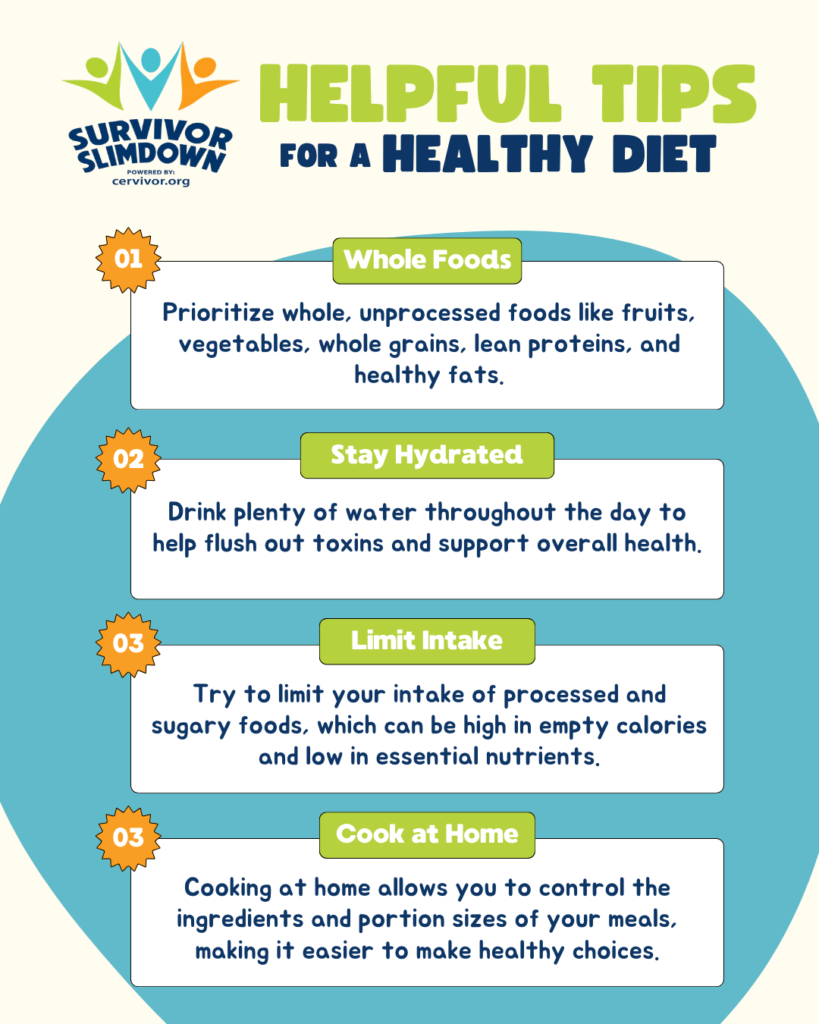
- Focus on whole foods: Prioritize whole, unprocessed foods like fruits, vegetables, whole grains, lean proteins, and healthy fats.
- Stay hydrated: Drink plenty of water throughout the day to help flush out toxins and support overall health.
- Limit processed and sugary foods: Try to limit your intake of processed and sugary foods, which can be high in empty calories and low in essential nutrients.
- Cook at home: Cooking at home allows you to control the ingredients and portion sizes of your meals, making it easier to make healthy choices.
Important Reminder: Remember to always consult with your healthcare provider or a registered dietitian to develop a personalized nutrition plan that meets your unique needs and health goals.
Addressing Disparities in Access to Healthy Food

Unfortunately, access to healthy food is not equal for everyone. Food deserts, socioeconomic disparities, and lack of nutrition education can all create barriers to healthy eating. Many communities, particularly in low-income and rural areas, lack access to grocery stores and other retailers that sell healthy, affordable food. This can lead to a reliance on convenience stores and fast food restaurants, which often sell high-calorie, high-fat, and high-sodium foods that can exacerbate health problems. Furthermore, people with lower incomes may struggle to afford healthy food, which can be more expensive than processed and fast food. Without access to accurate and reliable nutrition information, people may not know how to make healthy food choices or prepare nutritious meals.
Resources to Check Out
- Community gardens where residents can grow their own fruits and vegetables. These gardens not only provide access to fresh produce but also serve as community hubs where people can learn about nutrition and cooking.
- Farmers’ markets offer fresh, locally sourced produce and often feature cooking demonstrations and nutrition education.
- Food banks and pantries provide access to healthy food for those in need.
- Some organizations or programs such as Feeding America or SNAP-Ed (Supplemental Nutrition Assistance Program-Education) also offer nutrition education and cooking classes.
Nutrition Education and Resources Powered By Cervivor
At Cervivor, we’re committed to providing education and resources to support cancer survivors in their journey toward a healthier lifestyle after cancer. We believe that every survivor deserves access to accurate, reliable, and personalized information to help them navigate the challenges of cancer survivorship. Our mission is to empower survivors with the knowledge, tools, and support they need to thrive beyond cancer. Be sure to check out our:
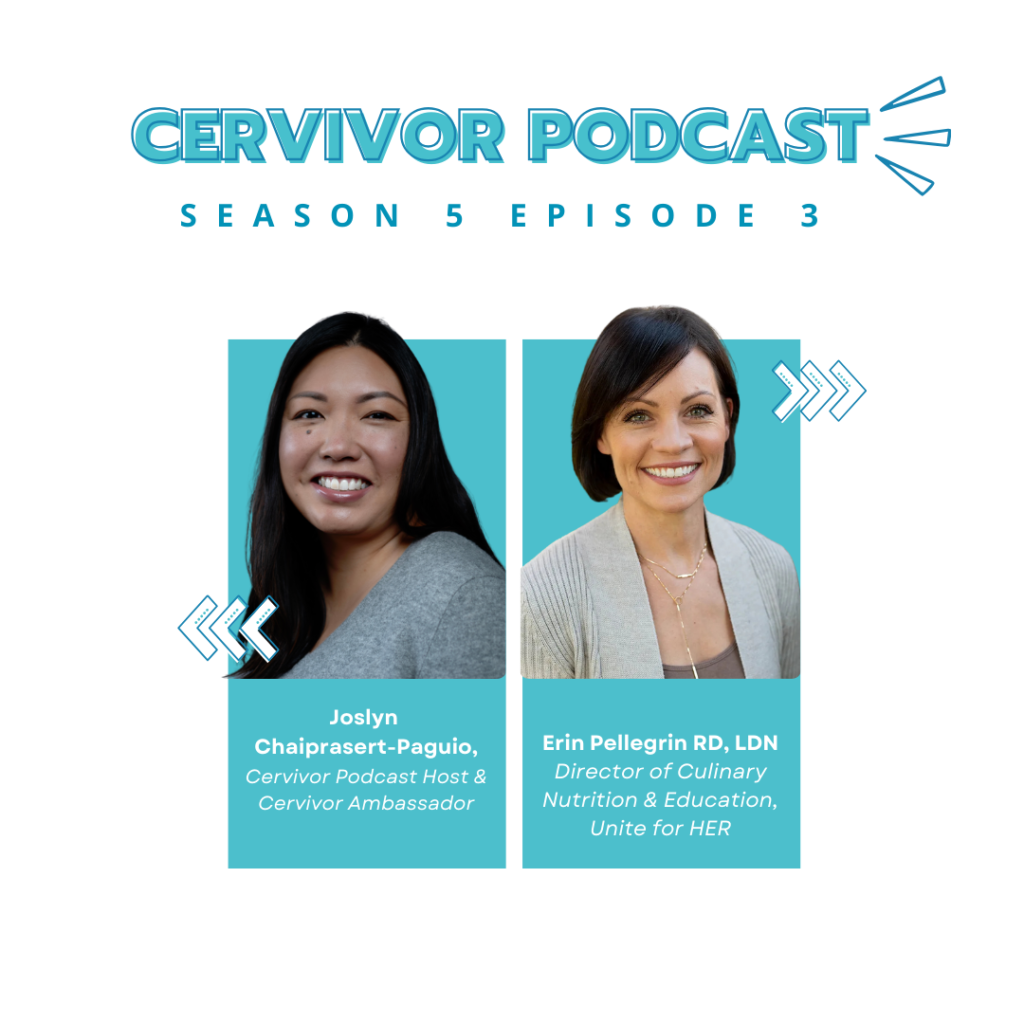
Cervivor Podcast: In our latest episode of the Cervivor Podcast, we’re joined by Erin Pellegrin Registered Dietitian, Licensed Dietitian Nutritionist, and Senior Director of Culinary Nutrition and Education at Unite for HER, who shares her expertise on the intersection of nutrition and cancer care. From practical tips on healthy eating and hydration to guidance on supplements and addressing common dietary concerns, Erin empowers patients, survivors, and caregivers with valuable insights to nourish their way through cancer. Visit our website to see the full list of listening platforms.
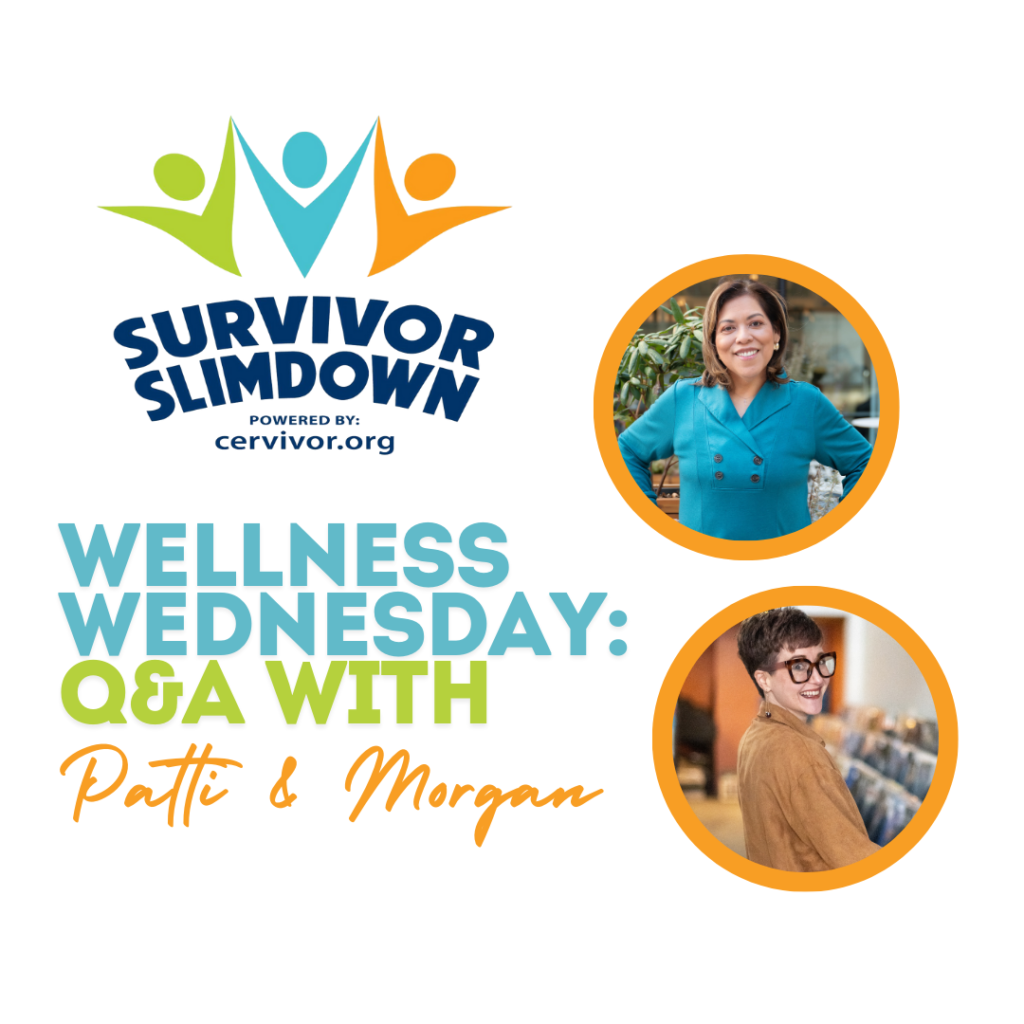
Wellness Wednesday: Watch a special Wellness Wednesday Q&A with Patti Murillo Casa, Cervivor Wellness Advisor, and Morgan Newman, Community Engagement Liaison, to hear their connections to the cause, the history of Survivor Slimdown, and the program’s accomplishments so far.
Patti expresses, “In a survivorship community, health promotion is crucial for improving the well-being of survivors by addressing physical, mental, and social needs, and fostering a supportive environment that enhances quality of life and long-term health. Please join our Survivor Slimdown program.”
Survivor Slimdown is a private community program designed specifically for cancer survivors, providing monthly challenges, fit tips, and support to help you achieve your health goals in survivorship.
Try a recipe from our cooking class with cervical cancer survivor, Tracy Citeroni!
Empowering to Thrive
Nutrition Awareness Month is an opportunity to feel empowerment and hope. By prioritizing a healthy diet and lifestyle, you can take control of your health and well-being, reducing the risk of cancer recurrence and promoting overall wellness. Remember, every small step counts, and making healthy choices is a journey, not a destination.
So, take the first step today. Join our community, explore our resources, and start fueling your fight against cancer. Let’s empower every survivor to thrive beyond their diagnosis!
